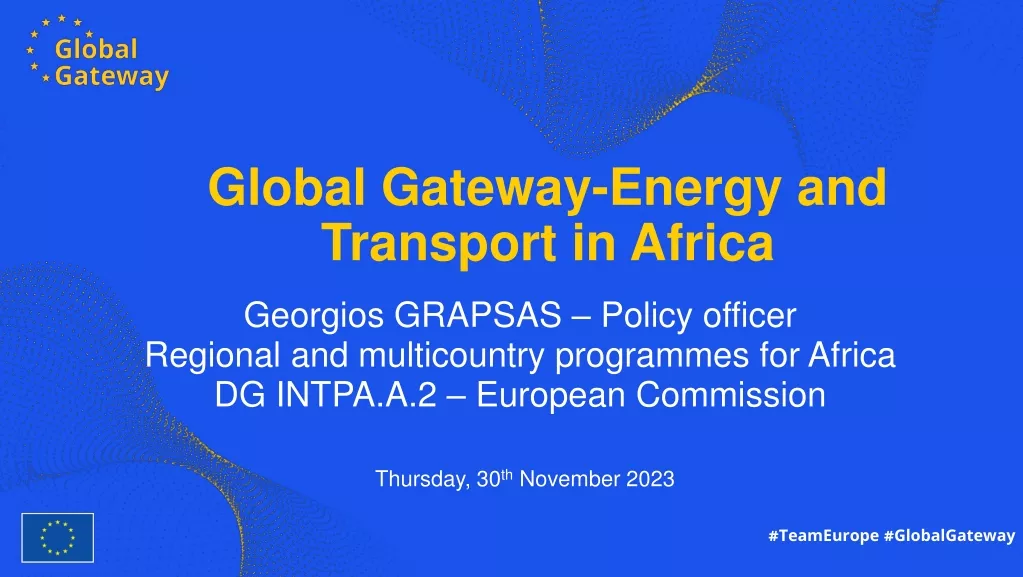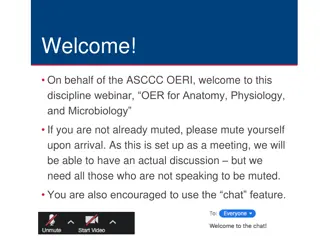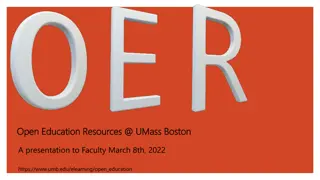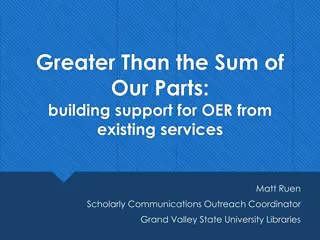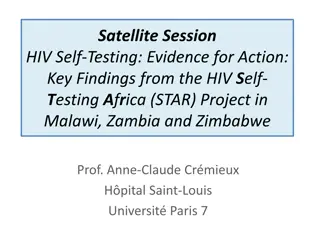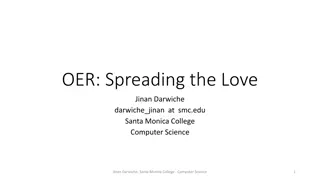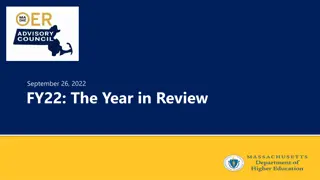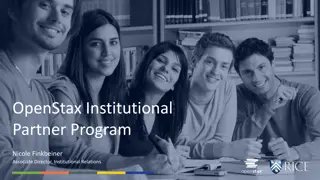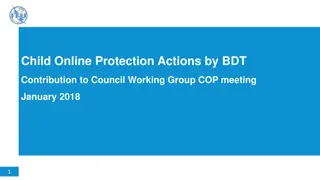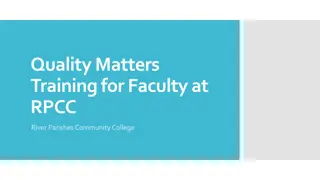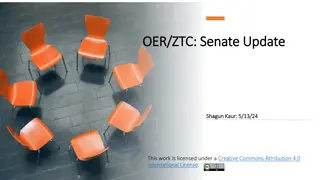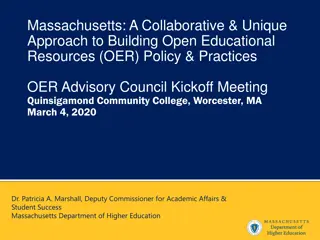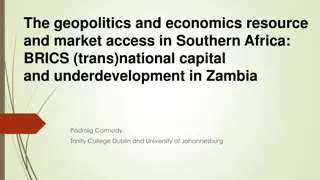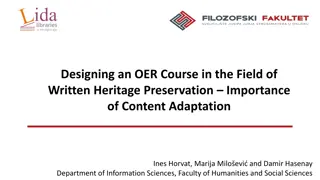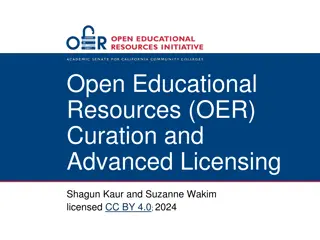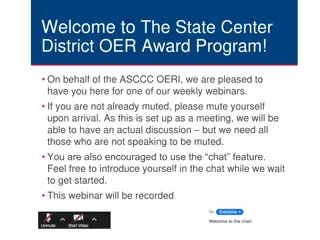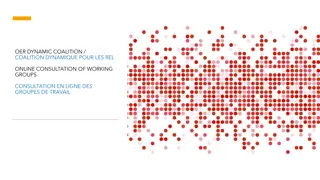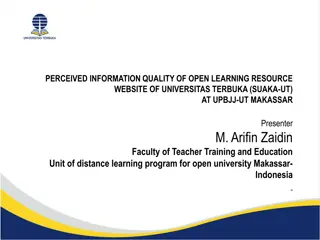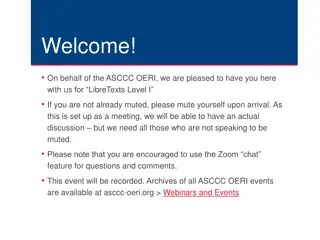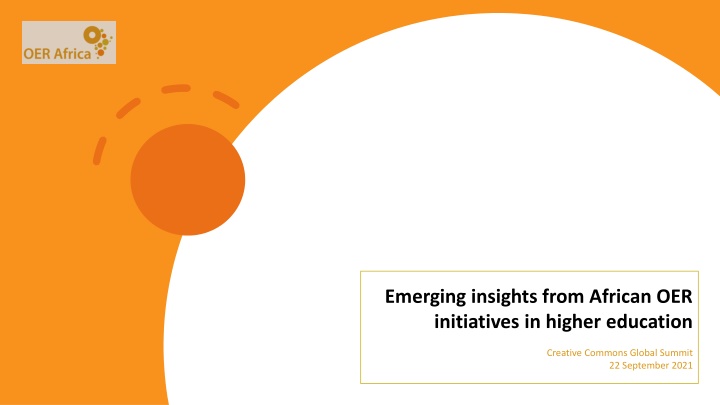
Insights from African OER Initiatives in Higher Education
Gain valuable insights from African Open Educational Resources (OER) initiatives in higher education. Discover successes, challenges, and lessons learned, highlighting the importance of advocacy, capacity building, resource development, and collaboration in mainstreaming OER practices.
Download Presentation

Please find below an Image/Link to download the presentation.
The content on the website is provided AS IS for your information and personal use only. It may not be sold, licensed, or shared on other websites without obtaining consent from the author. If you encounter any issues during the download, it is possible that the publisher has removed the file from their server.
You are allowed to download the files provided on this website for personal or commercial use, subject to the condition that they are used lawfully. All files are the property of their respective owners.
The content on the website is provided AS IS for your information and personal use only. It may not be sold, licensed, or shared on other websites without obtaining consent from the author.
E N D
Presentation Transcript
Emerging insights from African OER initiatives in higher education Creative Commons Global Summit 22 September 2021
Introduction Introduction OER Africa is undertaking an analysis of African OER initiatives in higher education OBJECTIVE CRITERIA METHODS STATUS The main objective of the exercise is to collectkey takeaways on successes, challenges, and lessons learned from the initiatives Initiatives were selected according to a specific set of criteria, e.g. Active for at least two years Should have at least one African partner Mixed methods: Survey In-depth interviews Desktop research Currently writing up case studies on each initiative and will then produce an analytical report (to be completed by December 2021)
Overview of Institutions Overview of Institutions We have sought examples from across the continent in the sample Virtual University for Small States of the Commonwealth (VUSSC) University of Cape Town (UCT) Open Education for Eye Health (OEEH) Kwame Nkrumah University of Science and Technology (KNUST) Open Education Influencers at Nelson Mandela University (OEIs@MandelaUni) Teacher Education in Sub-Saharan Africa (TESSA) African Teacher Education Network (ATEN) OER Term Bank National Open University of Nigeria (NOUN) African Veterinary Information Portal (AfriVIP) Open University of Tanzania (OUT)
Emerging Insights Emerging Insights | | Successes Successes Initiatives have experienced diverse successes through OER-related activities Effective advocacy efforts and awareness raising about OER The role of local champions Capacity building activities: for OER users and creators Resource development Increased access to materials for users Developing frameworks and guidelines on OER use Intra- and inter- institutional collaboration Mainstreaming OER into institutional practices
Emerging Insights Emerging Insights | | Challenges Challenges Initiatives have faced common challenges in implementing OER OER capacity building efforts present obstacles: Reluctance for additional work or time constraints Lack of skills, limited CPD opportunities Reconciling the personal benefit of OER with capacity building efforts Slower pace of OER adoption than anticipated, sometimes because people do not see the value in OER Issues regarding access Lack of internet connectivity Cost of internet ICT and adaptation skills Collaboration is key to driving activities, but is resource-intensive Building sustainable models and sustaining momentum after capacity-building efforts Limits on funding Lack of interest and motivation Changes in faculty/ institutional priorities
Emerging Insights Emerging Insights | | Lessons Learnt Lessons Learnt Recurring lessons are emerging from the data Localization Balancing localization efforts with attempts to adopt OER from similar contexts is key There have been various successes around OER advocacy, which have served to raise awareness and use of OER Advocacy Initiatives need adequate funding and innovative funding models that will allow them to become sustainable, which includes integrating them into university processes Sustainability Incentivizing people and institutions is important whether through financial incentives or other mechanisms like recognition Incentives Top-down & bottom- up Sustainability of activities and OER-related work has dual requirements both leadership and champions need to drive momentum Monitoring and evaluation Monitoring and evaluation in terms of usage stats and with reference to the initiatives themselves is crucial to measuring impact and adjusting strategies
Comments or Comments or questions? questions?

